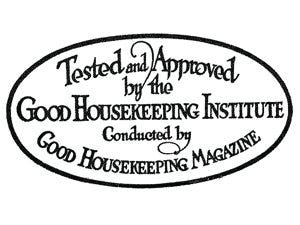October 24, 2013

Every growth industry deals with economic fraud, counterfeiting, mysterious suppliers and product adulteration. In fact, many of the world’s oldest laws are pure food decrees. Think German beer rules, Japanese rice standards and, unless you’re from Champagne, France, you are only a sparkling wine maker. The granddaddy of all food frauds was, and is, olive oil. Since the Greek golden age, trafficking in phony olive oil has been a massive and hugely profitable enterprise.
Even manure has been faked. The Association of Official Analytical Chemists (AOAC) was founded in 1884 to establish uniform chemical methods for analyzing fertilizers. Apparently, faking nitrogen content in fertilizers has been going on for a long time.
Horrific examples of adulteration in the meatpacking business led to publication of Upton Sinclair’s The Jungle in 1906. Intended as a call to improve workers’ conditions, the public was revolted by the prospect of eating tubercular beef or learning of workers falling into huge tanks and ending up as one of the “other” ingredients in Durham’s Pure Leaf Lard.
Early attempts at safety
Ultimately, the federal government had to do something, which it did by passage of the Meat Inspection Act in 1906, later re-titled as the Food & Drug Act of 1930. It was at this time that Dr. Harvey Wiley, the first “commissioner” of the Food & Drug Administration set up his “poison squad”—a brave group of clerks who agreed to become the country’s first food safety lab. The methodology was simple. Eat things, such as boric acid, caffeine, saccharine, and much worse, until you could eat no more (or much worse). This tradition is carried on today by foolhardy tourists who think sampling food out of street trucks on a hot summer’s day is an “adventure.”
Ultimately, Harvey Wiley resigned his position with the government and became the first director of the Good Housekeeping Institute laboratory. The institute conducted tests and experiments on food safety, which were published in Good Housekeeping Magazine. The Good Housekeeping Seal was created to recognize food and consumer products of superior quality and reliability at a time when the average housewife had no other trusted source of information to feed her family safely. The Good Housekeeping Seal remains an icon of consumer trust for food products.
At a very recent workshop led by the U.S. Pharmacopeia, this same issue of economically motivated adulteration of foods and their ingredients, including dietary supplements, was laid bare on the table. The reports presented were sobering and covered the full spectrum of foods we consume often: skim milk, instant coffee, natural colors, as well as sports nutrition products, chondroitin and a wide range of botanicals.
The speakers and audience represented many national health authorities, food safety experts, nonprofits, analytical labs and health professionals. The presentations bore an unrelenting theme: foods and supplements are at risk for economic adulteration, no matter the rigor or authority held by the national regulator. This includes the EU, Canada, Singapore, the UK, China and South America, just for starters.
If, as is frequently repeated in media, the Dietary Supplement Health & Education Act (DSHEA) deregulated the dietary supplement industry, then how is it that countries with “tougher” laws governing dietary supplements have the same adulteration issues? The underlying cause must be something other than the regulatory systems involved. Thus, it seems the real myth of the “unregulated” U.S. supplement industry is the myth itself.
Calls to amend DSHEA are misguided, because changing the law doesn’t change the problem. The problem is the effect of criminal exploitation in high-growth markets, which are both global in size and fragmented in nature. When these conditions exist, fraud, adulteration and counterfeiting flourish.
Sizing the black market
NBJ reports U.S. dietary supplement (DS) sales at $32.5 billion in 2012. I estimate U.S. sales of “black box” dietary supplements at 15% of sales, or about $5 billion. These black box categories include spiked erectile dysfunction pills, rapid weight-loss products, steroids and their many analogs, beauty and ageless products (such as those containing human growth hormones), diabetes, arthritis and pain products, treatments for depression and anxiety, recreational use products and drug addiction alternatives. The consumers for these products are driven by anonymity, fear, vanity and real or imagined illness. These black box products are dangerous, sold by players with one agenda—making money.
The roughly $5 billion of ill-gotten sales simultaneously diverts legitimate sales from within the DS industry and drives sales away through negative consumer experiences. Either way, this direct and indirect erosion of business, consumer confidence and public opinion are taking a toll. And remember—it’s not just dietary supplements. The global trade in counterfeit food commodities and medicines— both prescription and OTC—is also at epic numbers.
The market value of black box products will soon surpass $5 billion. This poses a threat much greater than Congressional attempts to amend DSHEA. Over time, mature industries have learned they must aggressively challenge this economic contagion or risk losing the support of policy makers, the trust of consumers and the integrity of their own brands. While defending DSHEA will always remain a top priority, defending against this invasion of economic predators is now equally important to the regulated and responsible dietary supplement industry.
You May Also Like




